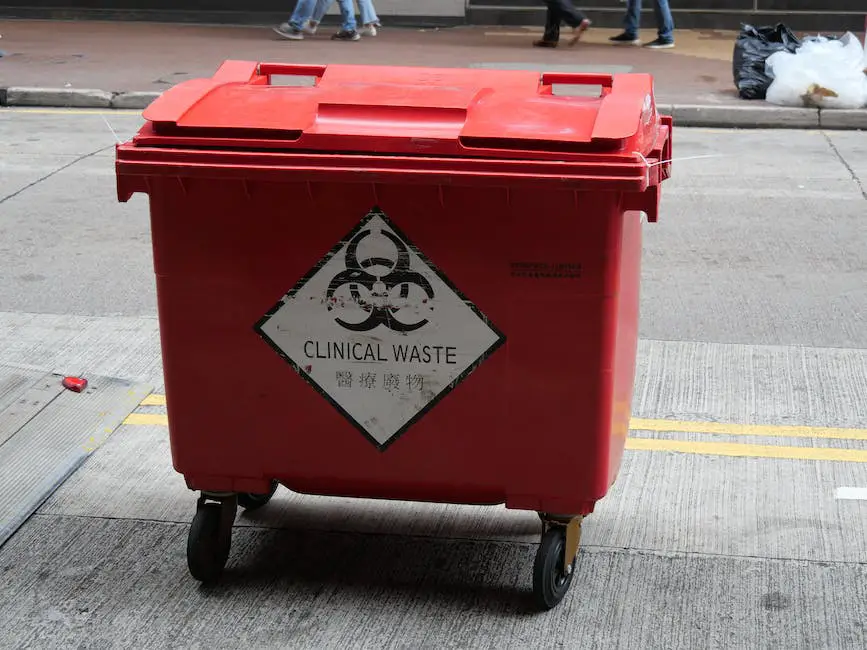What can we do to practice sustainable living? I enumerate and discuss recycling habits that will help anyone achieve sustainable living and to care more about our planet. Read on to find out.
Table of Contents
As global consumers, our buying habits inevitably result in the generation of a certain amount of waste which, if not effectively managed, can have detrimental impacts on the environment. Recognizing the dual responsibility we bear – as custodians of our environment and producers of waste – it becomes clear that the adoption of responsible recycling habits is not just a matter of convenience but a crucial component of sustainable development.
This discourse pivots on the intersection between recycling habits and several key areas; their impactful role in sustainable development, the psychological aspects that mold these habits, and recent innovations designed to promote better recycling behavior.
The Impact of Recycling Habits on Sustainable Development
Individual Recycling Habits: An Indispensable Vehicle Towards Sustainable Living
In the global pursuit of sustainable development, the importance of individual recycling habits cannot be underestimated. They form an integral part of the broader ecological tapestry, acting as an indispensable vehicle towards the achievement of our overarching sustainability goals. It’s vital to comprehensively understand the impact of consistent individual recycling efforts on environmental conservation, resource efficiency, and waste reduction.
To observe the more apparent benefits of recycling, it’s essential to focus on how this practice reduces the burden on rapidly depleting natural resources. Every time a product is made from recycled material rather than virgin resources, we reduce the extraction pressure on our already strained natural reserves.
For instance, recycling one ton of paper saves about 17 trees and over 3 cubic yards of landfill space. Essentially, recycling is not only an act of personal responsibility but an essential step towards biodiversity preservation and effective resource management.
Moreover, recycling plays a central role in mitigating climate change. When recyclable materials are deposited in landfills, they emit methane—a potent greenhouse gas. By contrast, the production of goods from recycled materials typically requires less energy, consequently leading to fewer greenhouse gas emissions than producing goods from virgin materials. Therefore, it’s evident that regular recycling habits can significantly contribute to global efforts to keep temperature increases well below 2 degrees Celsius, as per the Paris Agreement.
Equally crucial is the contribution of recycling habits to waste management and reduction. Approximately 160 million tons of solid waste are generated in the United States annually, with only about 34% diverted for recycling.
Developing robust individual recycling habits can substantially increase this percentage, promoting efficient waste utilization and reducing the volume of solid waste destined for landfills. With each responsible recycling action, individuals contribute to a cleaner environment and sustainable waste management systems.
Collective Effects of Individual Recycling
Notably, individual recycling efforts are vital for fostering an environmentally conscious society. They serve as an avenue through which people engage directly with sustainability practices, facilitating environmental education and awareness. Through these actions, broader societal understanding and dedication to sustainability grow, influencing policy formulation, corporate responsibility, and sustainable development trajectory at large.
In light of this understanding, it becomes strikingly apparent how recycling, an act often carried out at the individual level, ties into the grand scheme of sustainable development. By recycling consistently, individuals can wield an outsized influence on environmental conservation, resource efficiency, and waste reduction. These seemingly minor actions, replicated across millions of households, could be the linchpin holding together our collective pursuit of a sustainable world.
In an era defining the very shape of our planet’s future, understanding and embracing the power of individual recycling habits is imperative. By recognizing the significant role that every recycling decision plays in wider sustainable development, individuals can transform their homes into incubators for environmental sustainability, and as a result, drive the world towards a future in which humans and nature can thrive in harmony.

The Psychology of Recycling Habits: 5 Determinants
Psychological Determinants of Recycling Behaviors: An Exploration
Understanding the psychological factors that influence our recycling habits deepens our grasp of sustainability. This discernment not only informs policy formulation and corporate responsibility but also paves the path for shaping a more eco-conscious society.
1. The Role of Intrinsic Motivation
Firstly, intrinsic motivation plays a formidable role in recycling habits (Chao et al., 2023). Individuals with strong environmental values are often intrinsically motivated to recycle, steering clear of the detrimental effects of wastage on our planet’s natural resources. This incentive, sprouting from personal conviction rather than external stimuli, holds a greater influence on recycling habits than monetary or other external inducements.
2. Theory of Planned Behavior
One cannot also discount the impact of perceived behavioral control, a component of the Theory of Planned Behavior. This concept asserts that individuals who feel they have substantial control over their ability to recycle are more likely to do so. Indeed, this sense of self-efficacy contributes substantially to fostering strong recycling practices.
To further elaborate on the Theory of Planned Behavior, attitudes toward the behavior and subjective norms also factor heavily into recycling habits. If individuals hold positive attitudes toward recycling and perceive that influential people in their lives endorse recycling, these individual actions are more likely to be translated into regular, collective practices.
If individuals hold positive attitudes toward recycling and perceive that influential people in their lives endorse recycling, these individual actions are more likely to be translated into regular, collective practices.
3. Pressure of Social Influence
Social influence further drives recycling habits. A community that fosters a shared collective consciousness about sustainability, manifested in communal recycling practices, may incline more individuals towards engaging in recycling. This social normative influence can be harnessed to promote a culture of recycling among society members, thus minimizing our planetary footprint.
4. Cognitive Dissonance
Cognitive dissonance, the mental discomfort experienced by a person who holds contradictory beliefs or values, also holds sway over recycling behaviors. You know it is right to recycle, but you usually don’t do it anyway. Maybe due to laziness, or plain inconvenience.
To mitigate this cognitive dissonance, an individual who understands the importance of recycling yet does not practice it might alter their behavior to align with their belief system, culminating in the adoption of regular recycling habits.
5. Habits and Routines
Lastly, habits and routines are potent forces in directing behavior. Once a person establishes recycling as part of their regular routine, inertia often takes over, easing the sustainability practice into an automatic process. According to Lally et al. (2009), it takes 18 to 254 days to form a new habit. Adopting a new habit varies between individuals.
Subsequently, the adoption and solidification of these positive routines markedly influence individual recycling habits, thereby contributing integrally to sustainable development and environmental conservation.
Examination of psychological factors such as these provides a lens through which we can understand the complex dynamics of recycling behavior. It offers an opportunity to harness this knowledge towards fostering a society committed not merely to the concept of recycling, but to the broader vision of a sustainable planet.
7 Innovations and Approaches Promoting Better Recycling Habits
Cybernetics and digitalization form a crucial part of the recycling endeavor. Let’s discuss them here including behavioral approaches for better recycling habits.
1. Smart Waste Management Systems
For instance, smart waste management systems can monitor the fill levels of recycling bins in real time, then optimize collection routes to reduce fuel consumption and emissions. Not only does this enhance efficiency, it also mitigates negative environmental impact, serving as a prime example of how technology can intertwine with ecological mindfulness.
2. Automated Recycling Technologies
The advent of automated recycling sorting technologies has further revolutionized the process. Utilizing machine learning systems incorporated with visual recognition technology, these systems can identify and sort different recyclable materials, greatly improving the accuracy and efficiency while reducing human error and effort.
3. Return Management Systems
In close alignment, robust return systems for items such as plastic bottles or electronic waste contribute substantially to recycling patterns. By providing financial incentives, these systems augment participatory rates in recycling, leveraging the benefits of behavior rewarding to reinforce pro-environmental habits.
4. Extended Producer Responsibility
From a policy perspective, legislations that advocate extended producer responsibility (EPR) are instrumental. By holding manufacturers responsible for the end-of-life phase of their products, EPR laws incentivize designing for recyclability and reducing packaging. These regulations effectively curtail irresponsibly generated waste, facilitating a shift towards a circular economy.
5. Nudge and Boost Approach
In connection with policy instruments, nudges – behavioral science-backed tools intended to influence decision-making and action – have shown significant potential.
A classic example is the provision of clear and understandable recycling guidelines to dissipate confusion. Another impactful nudge is the strategic use of descriptive social norms, such as giving feedback on how one’s recycling habits compare to average community behaviors. This subtly encourages people to align their practices with their peers, thereby fostering more consistent recycling habits.
6. Curbside Waste Collection
The introduction of policies that implement curbside waste collection proves effective as well. Such systems simplify the recycling process for individuals, thus promoting consistent participation.
Following along these lines, deposit-refund systems have been implemented in several jurisdictions, motivating consumers to return containers through monetary benefits. These schemes successfully stimulate recycling habits, demonstrating the influence of policy in driving behavioral change.
7. Education and Public Engagement
Education and public engagement are pivotal movers as well. By incorporating environmental literacy into curriculums, awareness about the significance of recycling can be nurtured from a young age. Early exposure builds foundational understanding and a sense of responsibility, implanting the seeds for lifelong environmentally conscious behavior.
These technological and policy advancements have paved the way towards a more sustainable future. However, the journey is far from over. Continued innovation, research, and societal commitment are key if we are to create a world where responsible recycling habits are the norm, not the exception. After all, it is intelligent ingenuity coupled with earnest responsibility that will safeguard the environment for generations to come.

In light of the critical role that individual and collective recycling habits play in preserving the environment and fostering sustainable development, greater efforts should be directed towards enhancing people’s awareness about their environmental responsibility. Understanding the psychology behind these habits can provide valuable insights for formulating effective strategies to promote responsible behavior.
As we’ve illuminated throughout this discourse, technological innovations and policy interventions have significant potential in creating conditions conducive to better recycling practices. By embracing these innovations and fostering a culture of environmental consciousness, we stand a better chance at stepping forward into a future where the waste produced is responsibly managed, resources are conserved, and sustainable development isn’t just an aspiration but a reality.
References
Chao, C. M., Yu, T. K., & Yu, T. Y. (2023). Understanding the factors influencing recycling behavior in college students: the role of interpersonal altruism and environmental concern. International Journal of Sustainability in Higher Education, 24(5), 969-985.
Lally, P., Jaarsveld, C. H. M. v., Potts, H. W. W., & Wardle, J. (2009). How are habits formed: modelling habit formation in the real world. European Journal of Social Psychology, 40(6), 998-1009. https://doi.org/10.1002/ejsp.674

